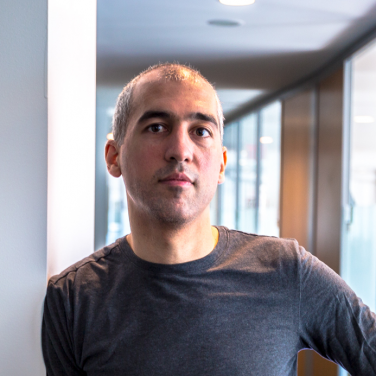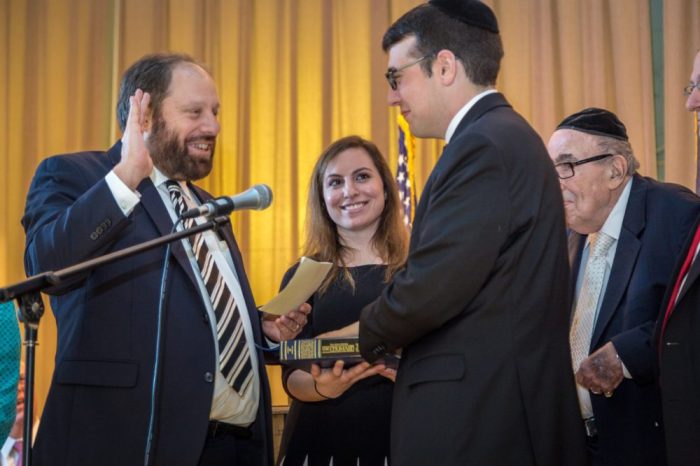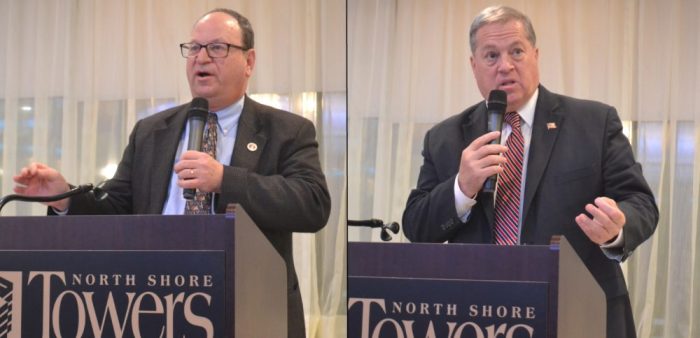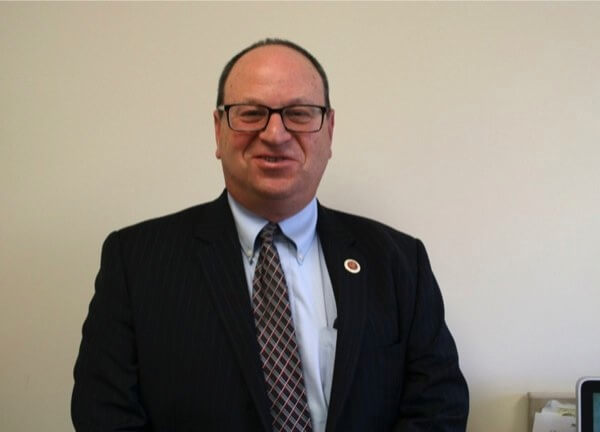A professor at the City University of New York School of Law in Long Island City has taken a leave of absence for this academic year to join the Biden-Harris administration in Washington, D.C.
Professor Ramzi Kassem, a national expert on immigration and national security issues, has been named a senior policy adviser for immigration at the White House Domestic Policy Council. Kassem brings years of academic and practical experience to the post in what is believed to be the first time that a CUNY faculty member has been named to a White House role.
In support of clients, communities and social movements, Kassem has litigated civil rights, constitutional, criminal, immigration, national security, wartime detention and war crime cases at all levels of the U.S. federal judiciary before military commissions and international tribunals and in various administrative proceedings. At CUNY School of Law since 2009, Kassem has served as founding director of CLEAR, an award-winning clinic at the Long Island City school. With his students, he has represented numerous immigrants and asylum-seekers in immigration court, before the Board of Immigration Appeals and in federal courts.
Most notably, Kassem argued Tanzin v. Tanvir before the U.S. Supreme Court, a landmark civil rights case challenging the federal government’s abuse of watchlists, resulting in a unanimous decision for the clinic’s clients. As part of their work at CUNY Law’s clinics, Kassem and his students have represented 15 prisoners of various nationalities incarcerated without fair process at Guantánamo Bay, Bagram Air Base and other secret or disclosed U.S. detention facilities worldwide. Their advocacy established important law-of-war precedent and resulted in the release of 12 clients to their home countries in the Middle East to date.
In 2020, Kassem was named to the inaugural class of Freedom Scholars in recognition of his work toward social, racial and economic justice.
“As an immigrant who has worked with people and movements directly affected by government policies, it is a privilege to be in a position that could make a difference at scale in the lives of other immigrants,” Kassem said.
The professor was not available for further comment while his transition to the White House is underway, but his comments to The Rule of Law Oral History Project at Columbia University detail a remarkable journey from his 1978 birth during the civil war years in Beirut, Lebanon to his childhood in Baghdad, Iraq and eventually to Damascus, Syria, and Amman, Jordan. His journey led to New York City where graduated from Columbia University and holds a law degree from Columbia Law School, where he was a senior editor for the Columbia Law Review.
“I lived in many countries,” Kassem said. “My formative years were spent in countries where there was not much of a functioning system of government, or at least not what would be seen today as a reliable, democratic, transparent system of governance and what’s known as the rule of law. I think that definitely influenced my decision to go to law school and the choices I made when I was in law school.”
His worldview was further informed by those he represented at Guantánamo Bay.
“When you actually meet those people and you find out that despite a calculated effort by the most powerful force on the planet to strip them of their human dignity, they have managed to retain that and they have managed to still find humor in things and they still manage to love and care about people dear to them who are in different places — it’s not to say that they aren’t going to deal with sometimes physical and almost always psychological scars of what they’ve been through,” Kassem said. “Different people will have to deal with that to different extents for the rest of their lives after they leave Guantánamo. No one, I think, can emerge from that place unscathed.”
Following his year at the White House, Kassem will return to CUNY School of Law, which continues to be a national leader on progressive immigration reform. Making legal education accessible to immigrant students is a central tenet of CUNY Law’s mission to diversify the profession and train lawyers to use the law as a tool for social change.
“We are incredibly proud of Ramzi being named to this important post,” said Sudha Setty, dean of the CUNY School of Law. “I have no doubt that he will have a positive impact on our nation’s immigration policy, and we look forward to Ramzi sharing his experiences with his students and the community upon his return.”





































